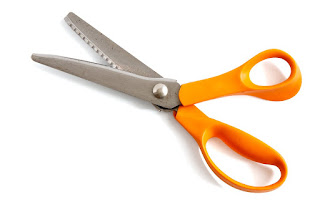Listen to conversations that people have. You don't have to listen in to conversations closely. Position yourself in a busy area where you easily overhear conversations. Make it so it is a place where it is appropriate that you might hear others talking.
Maybe you go to school, so you can sit in a place that has lots of students pass by between class times. Maybe you like to eat out. Position yourself in a busy restaurant. A fast food place is most likely the best place for this. People stand in lines and talk. Sometimes others join in the conversation if it is a topic in which they have knowledge. (I changed that sentence right now because I didn't want to end the sentence with "if it is a topic they know about," even though that is fine as vernacular - the way people speak, and it is okay in a casual blog post).
Listen to how many times people cut others off and how it is done. It's not in a rude way that people do that. They do it because they understand. It's not wanting people to stop talking. It's understanding them. This is especially true of close friends. They don't need to hear everything because they will understand.
Don't be afraid to incorporate this into your play. Let characters cut each other off. It happens. When this happens in a play, put a dash at the end of the line where the character that gets cut off is speaking. Then put a dash before the speech of the character that does the interrupting.
Sometimes people suddenly cut themselves off when speaking. If this happens, still use the dash at the end of the speech, but you don't need to put a dash before the next bit of speech. People also trail off in their thoughts when they can't think of things. When this is done, don't use a dash. Instead, use an ellipsis. That is a series of three evenly spaced dots.
Listen to other people's conversations. Listen to your own conversations. Figure out where people cut others off, where they cut themselves off, and where they trail off. Experiment with these styles in your writing. The more you listen and the more you write natural dialogue, the more natural your written dialog will sound.
If you enjoy my content, please consider becoming one one of my patrons through Patreon at https://www.patreon.com/TheatreGeek where I will be sharing more in depth content, answering your questions, sharing which types of software I use and how to find them, and more. By becoming my patron, you allow me to create more content about theatre and more theatrical content.

No comments:
Post a Comment